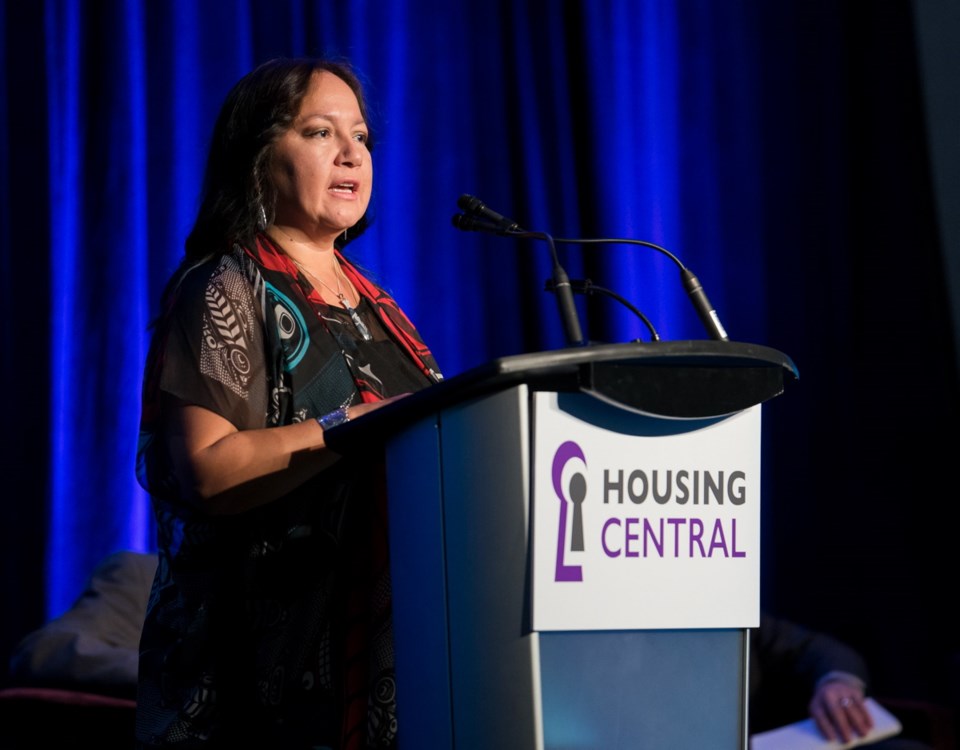Recently, I was at a conference waiting for the keynote speech to begin.
In a packed room with more than 1,000 people, Margaret Pfoh, CEO of Aboriginal Housing Management Association, stood at the podium.
During her introduction, she briefly mentioned she was a part of the ’60s Scoop. To most people, this would be yet another introduction and welcome speech, but to me her quick mention of the ’60s Scoop warmed my heart.
I, too, am a part of the ’60s Scoop, a movement where tens of thousands of Indigenous children were fostered or adopted into non-Indigenous homes from the 1960s to mid-1980s.
My parents were told they were adopting a First Nations child, but received no information on where I was from. Sometimes, I find myself with a foot in each world, not feeling fully planted in either.
When Pfoh spoke, it made me feel a part of something. She is a leader in Indigenous affordable housing and a great role model. When she speaks to a room, it’s as though she has carefully selected each word for full impact.
I’ve known about the ’60s Scoop for about 15 years. Regardless of my thoughts about it, it’s my experience and it has helped shape the person that I am.
On Oct. 22, 2016, I streamed Gord Downie’s Secret Path debut online. Following the program was a panel interview of three Indigenous people, one of whom was Tasha Hubbard, a documentary filmmaker and professor of Indigenous literature at the University of Saskatchewan.
During this interview, Hubbard mentioned she was a part of the ’60s Scoop and raised in a non-Indigenous home. At that moment, my full attention was on my computer screen. It was the first time I felt represented in mainstream media. Immediately, I found Hubbard’s Twitter handle and sent her a tweet. She replied, and we began exchanging a few emails.
“I can only speak about my own personal experience,” Hubbard said to me. “I know a lot of people have had very different experiences from me.”
Recently, I learned Hubbard did not intend to mention the ’60s Scoop in that interview.
“I remember getting the email and I was happy it had a positive effect on you, but it wasn’t the focus I was expecting to speak about on the panel,” Hubbard said. “Being adopted out is part of my identity, but it’s not my whole identity.”
Hubbard says she is uncomfortable with being spokesperson for the ’60s Scoop because there are others who know the issue much better. And for me, the one curveball question about the Scoop she received on stage made such a huge impact on my life.
In both cases, neither woman went into great detail about their experiences, but the small mention was appreciated.
While I was preparing to write this column, I called Hubbard and Pfoh. Through my conversations with both influential women, they brought forward how their upbringings help them with the work they do.
“As a filmmaker and as someone who was adopted out, I understand how non-Indigenous people view Indigenous people because of misrepresentations and gaps in our education,” Hubbard said. “I think about these things when I put a film together.”
For Pfoh, it’s the lessons of seeing beyond someone’s race, which she can then transfer to other characteristics, such as political views.
“I grew up in a family that didn’t see colour, and I don’t see colour now,” said Pfoh, explaining that in her home she was never treated differently.
I, too, find my upbringing helps me with the work I do. Recently, I’ve created a presentation titled Indigenous Relations: How NOT to Tick a Box. My intended audience is non-Indigenous people looking to create meaningful engagement with First Nations.
When leaders such as Hubbard and Pfoh use their platforms to make a small mention of their ’60s Scoop experiences, they make me feel as if I am a part of something.
“An elder once told me that I am where I am supposed to be, and my experiences have given me the skills and the knowledge I need,” said Pfoh.
In both cases, neither woman had even thought their small mention would have an impact. I can only wonder how many other people are out there listening to these words and they, too, feel more of a connection.
Charla Huber works in communications and Indigenous relations for M’akola Group of Societies.



